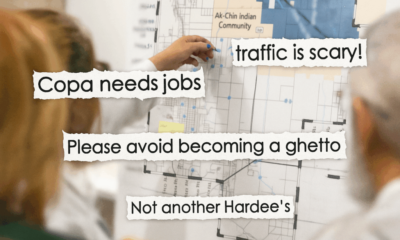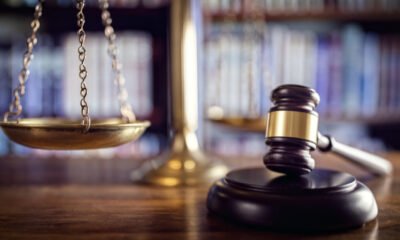2024 Election News
Calm After the Storm: Reevaluating Public Trust in the Post-Election Landscape

An election reform group has shifted its strategy by launching a litigation tracker to monitor potential legal challenges expected during the 2024 election cycle. This decision comes after the previous presidential election produced minimal legal disputes, prompting a reassessment of anticipated courtroom battles.
Election Overtime, part of the Election Reformers Network, initially prepared for a flurry of lawsuits stemming from closely contested races, particularly in battlegrounds like Arizona. However, the morning after the election, Kevin Johnson, the president of the network, announced the postponement of the litigation tracking tool.
In his statement, Johnson reflected, “It was clear last night there’s no overtime in this presidential race. It’s a different day than we expected, and maybe a different world.” Despite concerns about post-election legal challenges, the immediate aftermath was relatively quiet compared to past cycles.
While a statewide canvass in Arizona is set for November 25, experts have noted a significantly calmer environment. This unexpected tranquility offers an opportunity to evaluate changes in public trust regarding elections since 2020. David Becker, executive director of the Center for Election Innovation and Research, emphasized the long-lasting effects on voter confidence, particularly in a state often seen as a focal point for election disputes.
Becker expressed cautious optimism about restoring public trust. He acknowledged the damaging influence of disinformation but expressed hope that witnessing preferred candidates win could help counteract those narratives. The landscape of post-election litigation in 2024 starkly contrasts with previous years, where Arizona faced numerous lawsuits following the presidential election.
In 2022, Republican candidates contested election outcomes citing fraud, resulting in a series of significant legal battles. Notably, the Arizona Supreme Court rejected appeals from contested candidates, and as of now, no new challenges have emerged since the recent election. While uncertainty lingers, Becker believes that the previous cycle of litigation may help mitigate unfounded claims of fraud.
“This was always based on a lie,” he said, underlining the baselessness of conspiracy theories surrounding the 2020 election. He noted that rigorous scrutiny from the courts has validated the integrity of election processes in Arizona, strengthening public faith in election officials.
Jen Wright, an election attorney, praised the recent cycle for its smooth execution but acknowledged that third-party involvement, such as voter transportation services, contributed to this success. “A good voting experience is critical for restoring trust,” Wright noted, stressing the importance of positive voter engagement.
Despite the absence of disputes so far, the Election Reformers Network officially released its litigation tracker on November 12. This tool is designed to keep a watchful eye on ongoing legal developments that could impact election results and procedures.
Johnson reiterated the importance of distinguishing between actual election results and the narrative often propagated by the media. Understanding the “real results process,” which encompasses ballot counting and any necessary recounts, is vital in the event of closely contested elections in the future, he emphasized.
“We should all be thinking of litigation in election results, not as an indication that things have gone awry, but as a normal part of making sure things are done right,” Johnson concluded.


















